UP TO THE MINUTE
Homeowner Marketing Mastery - PODCAST TRANSCRIPT
June 3, 2025 at 6:00 p.m.Editor's note: The following is the transcript of a live interview with Renee Ramey of the MRA, Melissa Dunson of Central States Manufacturing and Masen Baker of Misfit Bound Marketing. You can read the interview below, listen to the podcast or watch the recording.
Intro: Okie-dokie everybody, welcome. This is Coffee Conversations from Metal Coffee Shop. My name is Karen Edwards. I'm going to be your host and moderator today and we're going to be talking about Homeowner Marketing Mastery. This is a great subject. Everyone's going to have lots of questions, I know and we really want this to be a conversation. So the chat is open. We'd love to hear your questions as we go. Tell us where you're from and who you are and we'll get this conversation going. Before we start, I do want to note that this is being recorded. It will be available within 24 to 48 hours on Metal Coffee Shop. Under our read, listen, watch navigation. All righty. Well thank you, first of all, to the Metal Roofing Alliance for being our sponsor today. We have a great partnership working with Metal Roofing Alliance and they are the best when it comes to marketing to homeowners. So really looking forward to this conversation. Let's dive in and start with some introductions of our guests. Renee, would you please introduce yourself?
Renee Ramey: Yeah. My name's Renee Ramey. I'm the executive director of the Metal Roofing Alliance. Been in the industry for longer than I care to admit, but we'll just say 25 plus years and have worked in everything from steel conversion, paint lines, service centers but definitely have always been very involved in the association aspect of our industry. And was fortunate enough to get asked to step into this role about nine years ago. So have been trying to get MRA represented and out in front of homeowners and the quality roofing message out for the homeowners for about nine years.
Karen Edwards: Yeah. Thanks Renee for being here. You guys do a great job. Next guest is Melissa Dunson. Melissa, welcome. Please introduce yourself.
Melissa Dunson: Thank you. We love Roofers Coffee Shop and Metal Coffee Shop, you guys are awesome. And we love the Metal Roofing Alliance, you guys are great. Love working with you guys. I'm Melissa. I'm the director of marketing for Central States Manufacturing, the largest metal roofing components manufacturer in the country right now. Been around for over 35 years, a 100% employee owned. I am new to Central States. I've been here a little over a year but I have about 15 years in the roofing industry working for major manufacturers. So I'm really excited to be here today.
Karen Edwards: Thanks. And last but not least, Masen, please introduce yourself.
Masen Baker: Good morning everyone. My name is Masen Baker. Originally from Washington State but got my start in the surveying engineering world and then saw a gap in the marketing. And so about five years ago now, started a marketing company and have been lucky enough to partner with companies like the MRA to really help develop their marketing strategy and how their marketing homeowners and companies. So I appreciate you having me here.
Karen Edwards: Yeah. Thanks for joining us. And fun fact, Renee is Masen's mother, so we love families working together. We do that at Metal Coffee Shop and MRA is doing that as well. Thank you once again for being our sponsor. Okay, I am going to stop sharing my screen because I really just want us to have a conversation and we don't need PowerPoint slides to do that. So diving into this topic, if you're marketing to homeowners, homeowners are busy and there's a lot of clutter out there on the internet. So I think one of the things that we focus on is trying to simplify our message while still educating them and getting the message across. And I want to start with Renee and Masen because you guys are focused on educating homeowners about metal roofing and the options and you've got a lot of experience doing this. Can you talk a little bit about how you get that message across but keep it simple at the same time?
Renee Ramey: Yeah. When I stepped into this role a while back, we were a little bit more and I think marketing just as a whole was a little bit more, we're going to throw everything at you. It was the mentality and I think at some point, that made sense or that did work. But yeah, you've nailed it, Karen. In today's world with cellphones and laptops and fast-paced living, if you will, we just don't have that time. So we have definitely streamlined all of our content, all of our social media pages, our website, everything has been very reformatted and cleaned out so that what you're looking at at the end of the day as a homeowner is, I want the information. I log on. Bam! Here's what I need. Very simplistic, very easy to navigate and follow. And I know we touch on it later but just even changing up the we're visual versus non-visual aspects of things as well. And then it looks like we might've lost Masen but Masen does all of our social media and whatnot as well.
And so, we've spent a lot of time and as the markets transition, taking out of other more traditional areas of advertising and promotion and gone to social media where Masen has helped us out tremendously.
Karen Edwards: Masen-
Masen Baker: Yeah, sorry-
Karen Edwards: ... do you want to add to that, please?
Masen Baker: Yeah. I think the great thing is that you can still be informative without overwhelming the customer. And that's where we, with the MRA and some of the other companies, have shifted into eye-catching graphics, simple headlines, something to bring them in. And if you really want to drive them somewhere, you can do that to your website or to an article. But the idea of putting a bunch of information out there for them to read all at once might actually negatively impact you because their attention span is usually so short that if they see something that's so overwhelming, they're probably going to skip right past it. So that's been our way of shifting that a little bit.
Karen Edwards: Melissa?
Melissa Dunson: Yeah. One of the things I always think about roofing is that as a homeowner, typically roofing is based on a need. A lot of people aren't just thinking about unless it's a new build. So tapping into that need, we know that really damaged and particularly weather events are very tied to that. And so whenever we're either doing homeowner advertising or encouraging our customers to do homeowner advertising, it's really get right to the point about why they should care about this. They have a need and that you need to help them understand why this product, this product's type is going to be the thing that meets their need and helps prevent them from having to have this need again quite so quickly in the future. And so that's been really effective.
Karen Edwards: Yeah. And when talking about, I love the message of keeping it simple because we are in the scrolling and scrolling and we just keep scrolling and you need to have that thing that makes somebody stop. And what that thing could be is it could be somebody who does have a need, Melissa. Maybe they just had a bad storm, maybe there was damage and storms have been going nuts. This is the season, right? April and May, in the middle of the country, across the country, really. So Renee, I want to talk a little bit about, because you are planting the seed and setting the stage with your education efforts, so how do you... I'm stumbling on my words here, trying to figure that out, keeping it top of mind and staying in front of the person even though they don't have a need? How are you targeting the people that you are targeting?
Renee Ramey: Right. Well, some of the homeowners that we deal with come to us, so we provide a form, we can get them to the website but when they become interested enough or want to get more information, it's a voluntarily sign up to learn more aspect of things. But taking it back to just the educational side and driving awareness of metal roofing just as a product, I think it's consistency. And again, Masen can answer this just as well or better than I, but it's consistency in timing of how often you're in front of them. And then there's the consistency of the look and feel or the format so that when they see it and it hits home with them once and then maybe you come back with a second message or a third message. If there's some consistency in that look and feel, it catches their eye and they can go back to it over and over. And yeah, that's one way we get our information out and attention grabbing.
Karen Edwards: So Masen, are you focusing on specific keywords or phrases when you are marketing to homeowners?
Masen Baker: Yeah, of course. I think that's a mistake that a lot of people use is it's not all necessarily about selling to the customer. I know we keep going back to education but that has proven to be the way to really hit home with homeowners and people that are in the market for metal roofing specifically, but it's using words like lifetime roof or energy savings, stuff like zero maintenance or eco-friendly that are going to trigger them to want to learn more. It's not just a title of, buy a metal roof now. So you really want to educate them and make them understand the benefits of why they're going to make that decision.
Karen Edwards: Do you find that more homeowners are more often doing their own research and are more knowledgeable by the time that they are ready to pick up the phone and call someone?
Masen Baker: Yeah. I think especially in today's day and age, we got information at the tip of our fingers. So I think we're at a time where a lot of people are doing research and part of that research is the information that we're pumping out too. So we want to make sure that what we're giving them is accurate and good knowledge and yeah.
Renee Ramey: Coming back to the keep it simple aspect of things as well is we will tease a topic or something that's attention grabbing, eco-friendly as an example, but we're not putting all that information about eco-friendly into an infographic or a flyer or out on a post or whatever. We are teasing it, getting them to come back to the website and then from there, educating them. And I think that's the key as we're speaking to homeowners and if you want to catch their attention to answer your original question, not overloading, as Masen said, keeping it eye catching or whatnot. But I also think that the more concise your message is even when you get them back to the website, at least for me, the more trust I have in the entity that just bullet, bullet, bullet, here's how it works, it comes across authoritative because you're stating just what needs to be known. And so for me as a consumer, I think that's valuable as well. Sorry.
Melissa Dunson: Yeah. So I'm realizing this is a conversation about marketing and we're making an assumption, I think, about the people who are listening about how much they know about marketing. And so just as a reminder, the very most basic, there's a lot of different marketing funnels but you've got awareness and then you've got interest and then you've got decision and then you've got advocacy. And so it's this idea that when somebody has interest, it's because they may have had storm damage, they may actually need a new roof but what we're talking about is this huge part of the top which is where you have to start which is awareness. And I think one of the challenges that in metal that we've had is that there's a lack of awareness that metal is even an option for homeowners specifically, residential re-roof. That metal is simply not an option.
It's not something that's been presented to them, that their neighbors have, that they've ever had before. And so what MRA is doing is so important which is sharing and creating awareness that like, "Hey, metal is not only an option, it's something you could get installed on your house. It also is a great option" because of the things that Masen said, right? That it's all of these things that you're looking for. You want to lower your energy bills, you want to have a better product that's not going to end up in a landfill. You want to have a roof that lasts longer, that has a better warranty, that whatever those things are, that's more impact resistant. So that's really what we're talking about is making sure that when that homeowner gets to the interest phase, they need something, that they aren't just thinking about the material that's on four out of five roofs in America right now.
That they're thinking about metal as an actual real option which leads them further down that funnel where they start to do this research and MRA is out there and they've done such a great job of creating organic SEO for their stuff that when you search for metal roofing and information about it, their site will come up and people will end up on their site. So anyway, we love partnering with them because what they're doing to educate homeowners about it being a great option is invaluable.
Karen Edwards: Absolutely. And thank you, Melissa, for backing up the boat a little bit and explaining those stages which probably should have started with that. And I also want to say that what we're talking about really now is pretty much all digital and getting in front of homeowners where they are which is on their phones, on their computers, on the internet. Okay. And so digital could be, it could be Google Display ads, it could be PaperClicks, it could be running ads on social media, it could be boosting your content that you're posting. Masen, I'd like, since this is what you do every day for a living, what's the best mix for people and how do you know what's going to be right for your company?
Masen Baker: Yeah. I mean every company's going to be a little different but I'd say for the companies that we're dealing with, especially in the roofing industry, we're seeing a lot of success with meta-advertisements. Whether that's boosting your content that's already out there or creating an advertisement that's fresh, you created a graphic for it and pumping that out. But what we found with meta-advertisements specifically is just you can get a lot with low cost and you can target specific demographics, areas, interests, etc. So that's something that we've seen success in but I know there's other working things out there like Melissa will probably talk about.
Karen Edwards: Do you want to jump on there, Melissa?
Melissa Dunson: Yeah. So I mean I love Google Display advertising but I do think it's been very effective for us with contractors. Facebook's right, it's the monster. It's where people are, especially of the age demographic that I think most people are looking their homeowners age, right? Jen Z and my kids are not necessarily, Facebook's not their jam and that's fine, but for us elder millennials, that's where we live and we own homes and we need roofs. And so, I think he's totally right about that. The other thing I would say for, it's not necessarily for a national manufacturer as much here but for a local business, because we're talking about contractors and how they can market to homeowners, I do think that Google AdWords highly localized is going to be really effective because if they're just searching for metal roofing, maybe the first site that comes up is the MRA, what you guys would like is that the second result that shows up is your business.
And so, one of the things that I had talked with Renee about, I think is a benefit to people in the metal space is that in the, maybe the asphalt shingle space, those AdWords are very crowded. It's all auction based. You're going in there, you're setting up, this is how much I'm willing to spend on this and then you're essentially bidding on whose stuff gets shown first and people who are willing to spend more money, really large manufacturers, really large contractors, they're gobbling up a lot of those same keywords that you're competing for. In the metal space though, it's a much more green field and there's a lot fewer people that are competing for those words. There's some, you guys can try out some stuff like SEMrush is one where you guys can go in and you can actually do some research to find out in your area, what are other people competing? What are the AdWords that they're looking to compete with? And I would encourage people go and find the space that nobody else is playing in because you'll actually pay a lot less per click.
And people, your customers as contractors, you're looking for people not three states away, you're looking for people who are in your area. They want to know metal roofing near me, metal roofing contractors near me. So I think it could be really effective.
Karen Edwards: Yeah. And we didn't talk about this when we did a run through prior but I think it's important to mention that when you search the internet for something, you know that the first three links, maybe four, people paid for to be there. So as consumers and homeowners are getting more smarter about that, they may skip those first few and go, "I want the organic one." So that is saying that you want to make sure that your website has the right content so that it will be delivered by the search algorithm as a valid, this has the information I think you're looking for. So maybe you could talk a little bit about the content on websites.
Melissa Dunson: I don't know who. I mean I love the content that MRA makes and we share it and we encourage other people to share it because it's such great educational pieces. I don't know if you guys want to talk about that. You guys are doing the hard work for people, honestly.
Karen Edwards: Yes.
Renee Ramey: Well and I was going to say that earlier and it slipped my mind, but we talk about keeping the message simple and we're doing all these things. We're on every platform out there, but again, everything we're putting out is extremely simplistic, easy to read, quick to read but I didn't really bring it full circle back to, you've got to drive them somewhere. Those little call to action buttons, click here, learn more, whatever the case may be, need to go somewhere. And that's where the website for MRA, that was my number one thing I did when I got into this role is if you don't have a solid, relevant, easy to use place that all these call to action buttons are sending homeowners to, then what have you accomplished? And so for us, that's what our website is. In our dynamic or our situation is everything that we do to promote metal roofing to homeowners, every link, for the most part, I'd say, I don't know Masen, 99% of our call to action is back to the website on some page.
And then to Melissa's point, that's where you're presenting the hard data, the facts, the information, the pretty pictures, the videos, whatever it is depending on the topic that you think appeals to and educates the homeowner about your product. Yeah. So I can't underscore enough, at least from my perspective, that having a solid website above anything else that you do from a marketing perspective for your company is very important. And I just want to underscore, I know that might sound like a daunting thing or an expensive thing for a business starting up or someone who's not familiar with it but we've stood up. I mean, Masen and I have another nonprofit association that we've stood up and I've created a website and I am not a web developer. Masen's done one. They're not that hard and they're not that expensive and they're pretty plug and play. If you are interested in starting up a website, you can do the most simplistic one just to have a presence and then go from there.
Karen Edwards: Yeah. I always like to say, take a look at the folks that you have in your company. If you have any of that next generation joining your team, they probably know how to do that.
Renee Ramey: It used to be what I did and then all of a sudden it was just like, "Oh, I don't know this anymore. I need to..."
Karen Edwards: Right. But yeah, that's so true because like Melissa said, there's awareness at the top and then we grab their attention and then we've got to bring them somewhere.
Renee Ramey: Yes. Yep.
Karen Edwards: ... and then you're bringing them to your website and if they come to your website and it's like, "Oh, what is this? I'm not going to work with that person or that impression that I'm getting from that website." So it's really important that that be part of it. Melissa, do you want to add?
Melissa Dunson: Well, I'll just say I thank you for saying that, Renee, because it is interesting to me how many small businesses, especially that contractors, they may not have a website, they have a Facebook page, that's their website. And while Google has gotten much better about scrolling and presenting Facebook page contents as a search result, it's gotten much better over the last however many years. There's a level of expectation in our culture today that if you're a legitimate business, that you have a website.
Renee Ramey: Yes.
Melissa Dunson: And so even though your content may show up in whatever the top page of Google, it's not saying necessarily what you want. "I'm trusted. You can pay me $25,000 to put on a new roof for you." Right? That's not saying that. And so you need to help people to feel they can trust you. You're legitimate. And then again, to Renee's point, I'm telling you there are the most amazing tools now where, I'll throw out to them people if you don't know what WordPress is, go find out. It is WordPress and WP Engine, you can do it. Purchase the theme. It is very simple to do it.
It's essentially drag and drop. You need to know almost no coding. The other, that one that you could do is you could literally try GoDaddy and they have some templates and themes that you can immediately choose from. You could, in an afternoon between that and the content that you could pull off of MRA, you could have a website and I highly recommend people too. And then another point about giving, if you have a new site, it might not have any authority. It might not have any because it's brand new, doing things like linking to legitimate sites like MRA and back linking content can help you with that. And so, make sure you prioritize sites that are legitimate, that have really good information on them, share that content, link back to it and that will actually cause your site to grow in authority and show up higher in SEO.
Karen Edwards: Yeah. So just what Melissa is saying, authority, what that is the domain authority which the higher your site ranks, the more likely it is to be delivered in search results when someone is searching. And it's not really, it's an elusive number, it's a prediction like, "Oh, we think your site is going to be at this number." The other thing I want to add into that too is Gmail or Yahoo or get a customized email which you can do through GoDaddy and through those for a couple bucks a month, right? Because same, Melissa, if I'm going to spend 25, $30,000 with you, I expect you to have a professional email which I mean Gmail can power it even but you can still use that customized domain.
Melissa Dunson: Yeah.
Karen Edwards: Okay. Sorry, we went down a bunny trail there but I think it's pretty important because we are making some assumptions that people understand and send your questions in. If we're talking about something and you have a question that comes up, please let us know. We'd love to answer it. I want to move a little shift over to, we're talking about WordPress and tools that are easy to use. I want to talk about AI and how, because it's just everywhere. And it can... Well, it makes things up. We know that. It creates stuff. It can make images. The latest trend if you're at least on Facebook with us older folks, was everyone making themselves into an action figure using a prompt for ChatGPT and it was cute, it was funny. But I'd like to talk about that using that in your marketing and I don't know, Masen, maybe you can get us started on that.
Masen Baker: Yeah. I mean I use it on a daily basis and it's not always for major things, but especially in the space of business, the general saying is time is money. And when you're spending in the marketing realm, when you're spending a bunch of time writing up captions for something like that, AI can be a good resource to get you started. Put a prompt in there, see what it comes up. Like you said, sometimes it gets a little funky and it adds a couple of things that maybe aren't true. So I would say if you're going to use AI, make sure to do your due diligence and give it that, I like to call it, that human factor. You don't want it to read like a robot if you're doing any ad copy or copy in general.
And then on a graphic front or sometimes it has an easy way of creating these cool graphics that you can use. And sometimes it's a little funky and it has things that you can't use. So I would say definitely play around with it. It's useful in a lot of ways but don't forget to put a little effort in yourself.
Karen Edwards: Melissa, you're laughing. Have you had some failures?
Melissa Dunson: I was going to encourage everybody to go google AI images gone wrong because it's hilarious, right? Because it's not a person. And so, it's very literal and it's putting things together sometimes that are very comical. You can't use them in marketing but man, if you needed to laugh, it's great. So I actually am aware of a situation, it wasn't for this company, where they had AI generate images and without knowing it, they actually violated some copyrights of some people because it had taken pieces and done things and actually it was not good for that company. And so, one of the things I always try to do is I think AI is awesome for image generation but not from scratch. And so I recommend people, lots of stock photo sites. Some of them are free, some of them are paid but they're very economical. I would purchase a stock image and use that as the basis of it so that you have the rights to that, you've bought the rights to that. Then you can use that and submit it in there and from that image, get it to iterate various things.
And a really effective version of it is a company I worked for previously. We had an image and whatever it was we needed to create with it, it was a horizontal image and not a vertical. And there simply was enough of the image to use for the purpose we needed. And so we stuck it in AI and said, "I need you to finish this picture as if it was these specs." And it did a beautiful job of it. It was like this instead of the designer spending hours and hours trying to fudge that and it did a great job of that.
So images, I think it's really awesome. I've actually, I've taken lots of information, put it into AI and said, "I need you to create a presentation out of this for us." It's done a great job. I need you to take lots of this information and give me a video script out of it or a blog post, it's done it. I've actually taken presentations about highly technical subjects, thrown it in there and said, "I need you to write me a very simple high-level blog post about this technical information." Again, it spits out stuff that, to Masen's point, you should not just use as is but often, it saves you a lot of time because it gives you a nice framework to work through. You need to rework some of the language so it doesn't sound like a robot wrote it which it did and then you need to fact check your AI. I mean that's the deal because I have seen it, what did you say? I think it was Karen, we were talking, that's the G of ChatGPT-
Karen Edwards: Yeah. Generative.
Melissa Dunson: ... generative. It made it up, literally made it up. And so you don't want to do that, especially in this space. We're talking about high dollars, people's homes. We need to make sure that the information is trustworthy and accurate so that people feel like they can trust you. So fact check your AI, but it's a great starting place and can do some of the big bulk work. And then you can, as a human, apply the things and your personality and actually make it sound like a person and make it what your customers need to hear.
Masen Baker: Yeah. And I was going to add another thing too is for your companies that have social media or website, you can put in those social medias or your website and say, "Analyze this, see what I'm doing wrong?"
Melissa Dunson: That's great.
Masen Baker: ... what it spit out about out topics that you could fix or change or stuff like that. So there's a lot of different options of AI besides text or graphics that you can use.
Karen Edwards: Yeah, that's a good point-
Melissa Dunson: Masen, I just learned something-
Karen Edwards: Yeah.
Melissa Dunson: ... and I'm going to do that.
Karen Edwards: I know.
Melissa Dunson: Thank you.
Karen Edwards: I know. I didn't even think about doing that either. And really, because your social media page, that's data and that's basically what AI is doing is analyzing that data in an instant. And a couple of comments. Amanda, AI needs to be used as a tool, not a replacement. Absolutely.
Melissa Dunson: Yes.
Karen Edwards: Absolutely. A 100%. And then Carla wanted to know which tools you guys are using for your AI.
Renee Ramey: I defer to Masen.
Masen Baker: Yeah. So I do a lot of work on Canvas. So they have one integrated in there, in their space. ChatGPT, Grok is a new one. There's about a bajillion different ones out there if you go and search. Each have their own benefits and maybe downfalls. So I would just say play around with a few and find one that you like.
Melissa Dunson: Yeah. Go for it.
Masen Baker: What's that?
Renee Ramey: I said have those all been free?
Masen Baker: Yeah.
Renee Ramey: Yeah.
Masen Baker: Everything so far is free. Yeah.
Renee Ramey: So you're not spending a dime to go out and explore and research some of these things and then even utilize the benefit.
Masen Baker: And most are but they do, most will offer an upgraded membership that you can pay for but as far as just being able to go and play with them and use them, everything has been free, so that's great.
Melissa Dunson: Yeah. The one other one that I would throw out there that actually I've used is Copilot and it's actually pretty good. And there is the free version of Copilot that you can use but then you can also, if your business is large enough or interested in it and wants to keep your information, whatever you're using it for, not out into the universe, you can actually get an enterprise license for it where whatever your prompts are and the data that you put into it is actually secure and it's not being shared with the wider world. Can make businesses feel, especially if you wanted to put numbers in there and spreadsheets and get it to analyze that stuff, you could actually do that and not be afraid that other people are going to have access to your customer data. So it's been really... Copilot is the one that I'm using the most in our enterprise version.
Karen Edwards: Yeah. We just are upgrading for Copilot to a paid version here at the Coffee Shop. And that's a really great reminder is to remember whatever you put out there in a free version is now out there, right? It's got it. And it's going to serve it up to other people. It's going to use it and as it learns. And Kathy has a comment here. She said, "It's interesting to ask AI which tool is best for you given what you're trying to accomplish? Here's what I want to do, what do you think I should be using?" Really interesting. Wow. Good conversation. Okay. So let's talk about what types of content. We talked about eye catching, simplifying messages, but the visual aspect, what's working in marketing metal roofs? Is it video? Is it still photos? I mean, Masen, Renee, you guys have beautiful roofs behind you. Are these the images that you're using in your advertising? What's working?
Masen Baker: Yeah. I would say to start it off, video is a great resource or a thing to push to homeowners. A couple of the ones that are big is drone footage to show and compass that entire home in the roof and how beautiful it looks and the coverage and all that stuff. Short testimonial clips, same as the graphics of not dumping too much information on them at once but a 30 second clip of a homeowner talking about the benefits of their roof and how much they love it and then driving them back to your website. So video for us is a great useful thing. And then images before and afters of roof if you're doing a re-roof. My main thing is just make sure it's quality. I would say to prioritize quality over quantity because a lot of the mistake that we see in the marketing realm is companies and people just pumping out content to pump it out with no real meaning or anything like that behind it. So if you're going to pump out some content, whether it's video or photo, just make sure it's quality.
Renee Ramey: Yeah. And I think just to reiterate where he is going with that is it goes back to having a website, at least a presence out on the web is a homeowner is trusting you. Metal roofing isn't cheap and homeowners are investing a lot of money to make sure they're getting a quality product that's going to last a lifetime and all this. And they're going to be more apt to do it with someone whose picture isn't pixelated as Masen always points out or who have a web presence, so you feel they're a legit company. So yeah, there's a lot to be said for the quality versus quantity aspect of things out there. Good companies, not saying this is true but this is the perception, good companies have good ads, have good websites, have accurate information, so be aware of that.
Masen Baker: Yeah. And tying that back to the conversation we were just having about AI is there is AI platforms out there that can sharpen your images and make them more clear. So if that's an issue that you're having, try that out and see if that helps.
Karen Edwards: Yeah. It's crazy all the tools that are out there and there are a lot of photography companies that have drones now and you could run out and buy a drone, it's affordable but you need that license to fly it, so don't just buy it and go fly and take pictures for your business because you could get in big trouble. And somebody that does it every day really understands the angles, the lenses, how to operate it, so it's worth making that investment and showcasing your work. Yeah, definitely. Okay. So we talked a little bit about the digital channels to advertise on. Whether that's social media, Google Display. Masen, maybe you could talk a little bit about the success you've been having on social media with just boosting posts and what does that look like in terms of cost? Because I want people to understand you can make a pretty good impact with not a lot of money. So could you speak to that a little bit?
Masen Baker: Yeah. I mean just to give insight into the few of the companies that we're working with, it's on some of the ads, we're spending as little as $300 running that advertisement for five to seven days and you're reaching 70 to 120,000 people. And that, it is largely based on the specifications that you have around that advertisement. It's the location, it's the type of people you're trying to reach. So the broader the audience, the more you're going to reach. The more specific obviously, the less. So overall, you can get a lot of bang for your buck when it comes to meta-advertising. Whether it's boosting and just to clarify, boosting is boosting something that you've already posted on your social medias, whereas just a meta-advertisement is something new you're putting out there. So hopefully, yeah.
Karen Edwards: Melissa, have you been doing things on social with paid?
Melissa Dunson: Yeah. And I personally, so boosting is awesome. I like to mix the two together. So both just straight-up advertising because your meta-advertising will get shown not just in write a feed or something but you get a lot more touch points on the side in Messenger. You can add in some of the things like WhatsApp. So there's a lot of different things like that and you have to pay attention. I think it depends on who you're trying to reach because people should play around, they should look at both. Boosting has its own set of targeting parameters and the actual advertising has its own set of targeting parameters. And I will say boosting is more cost-effective, for sure. It doesn't have quite as deep a targeting. So depending on how deep you're trying to get with that but I think people should do both and you're more likely to get followers or reach the people that are following you or like the people who are following you already if you're doing boosting. So it's an inexpensive way to quickly make a big impact, I totally agree.
There's other forms of advertising depending on who you're trying to reach. If you are trying to reach maybe higher end homeowners or maybe you're actually trying to do business owners, you may consider LinkedIn advertising. It is a little pricier but it is somewhere that anyone who's a professional level would have a presence there. And so, that's also something we've been working with. It's been pretty effective.
Karen Edwards: Yeah. And I want to say we're talking all digital, but if you're a local contractor that there's some traditional advertising outlets out there that can make a television ad, a print ad.
Melissa Dunson: I know this is even going to sound crazy. I'm a big fan of contracting companies sponsoring sports teams.
Karen Edwards: Yes.
Melissa Dunson: It's actually incredibly effective. That really localized name recognition and you have a bunch of kids and coaches who continue to wear their team jerseys everywhere. Your name gets mentioned a bunch of times. It's in a program every week when their kid plays Little League Baseball. It is actually really effective and it's not typically terribly expensive. And you get the boost of doing something great in your community and showing that you're supporting your community. So it's a win-win.
Karen Edwards: Yes. Ask your team members, who's got kids on a sports team? I bet they all raise their hand, so that's easy to do. I want to also mention and we didn't talk about this earlier either but there is a platform out there that for homeowners, I think is really grown over the last few years and that's NextDoor. Are you guys using that in any way? I get notifications because they email me stuff and I go, "Mm, what's that about?" And people are always saying, "Hey, I'm looking for someone to fix my fence." And looking for recommendations. And I believe they have advertising opportunities that businesses can go on there. What are your thoughts on that?
Renee Ramey: We haven't. I'm familiar with them. I've heard of them. To my knowledge, unless Masen's done something on our behalf in that realm, we haven't done much with or anything with them just yet.
Karen Edwards: Interesting.
Renee Ramey: Yeah.
Melissa Dunson: Yeah. I am familiar with House and Angie and some of those things and NextDoor. I think some of the challenges in some of the other platforms, I don't know this about NextDoor, was their business practices and at some point, there was enough attention on it that people didn't feel good about it. Homeowners didn't feel good about it and then suddenly contractors didn't feel good about what they were getting for their advertisement. So I do think that's a challenge for sites like NextDoor to have to overcome that there have been other similar type sites that have maybe done some things people didn't like. And so people-
Renee Ramey: Right. Yeah.
Melissa Dunson: ... I guess the thing I would encourage people to look into contractors to say, go in there and ask some really tough questions about how your stuff is being promoted and what lead you are getting out of it. And if the answer is it's good, then that's fantastic because you're partnering with a company who's doing separate advertising that benefits you on top of the advertising you're already doing, right?
Karen Edwards: Yeah. NextDoor is more like a social media platform.
Melissa Dunson: Yeah.
Karen Edwards: ... for neighborhoods is the way that works. So they're not capturing leads and selling leads to contractors but contractors could put an ad on the site. I know nothing about it. I just know from my own personal experience. That's how I found my electrician, to be honest.
Melissa Dunson: Oh, interesting.
Karen Edwards: Yeah.
Melissa Dunson: Maybe it's an organic opportunity. I mean it's a little bit like you can have a Facebook presence, you can have an Instagram presence, you don't have to buy ads. I think everyone should have a social profile, a handle-
Karen Edwards: Yes.
Melissa Dunson: ... on all of the relevant socials. And so if that's one, that's, the people that you want to sell to are on there, then set up, what do you have to lose? Set up a free profile on that.
Karen Edwards: Yeah. So let's talk real quickly and I don't know, Masen if you want to start us off, about the importance of a Google business profile?
Masen Baker: As far as my business or are you talking about for contractors?
Karen Edwards: A Google My Business? I think they keep changing the name. Claiming your business profile so that when someone does a search, there's that box that shows up over on the right hand side that you can claim if it's your business and then you can post information and content there and also capture Google reviews.
Renee Ramey: Should have it. It's important to have. Super frustrating trying to get it updated and changed as a business. So from an MRA perspective, I probably dabble on the MRA side more with my business and that little bar that shows up on the right.
Karen Edwards: Yeah.
Renee Ramey: ... and we changed office locations and it was like took an act of congress to, "I'm the owner. I need to change this." "Nope. You didn't pass our... Nope." And so to be honest, I'm not sure our address is still up Google's face. But you're right, I mean to what you're saying. I mean if nothing else, make your website and your phone number and hopefully, you can get your location and they'll let you upload and change out pictures. You can map your location and all of that. To Karen's point, that's usually if I type something in or search something in, I do see that pop up in the right, that's where I go to click through to the website or grab their phone number. So that is a very important aspect of your business.
Karen Edwards: Okay. Amanda, thank you. She has a profile on NextDoor. She said it is similar to BuildZoom or House.
Renee Ramey: Okay.
Karen Edwards: So yeah, just be aware, ask tough questions like Melissa said and make sure it's right because there's nothing more frustrating than feeling like you're throwing money away, right? Yeah. Okay. I want to make sure that we touch on the last part of the funnel that you mentioned, Melissa and that's advocacy. And I see that as getting that five star review on a Google Review. And how do you build that as a contractor? After you've attracted the homeowner, you've sold them the job, you've installed a beautiful roof for them, how do you turn them into your advocates? What are some things that you can do?
Melissa Dunson: Well, I think the most important thing contractors do and it's not that hard, is quit looking at your customers like that's no longer your customer. You installed the roof and now you've moved on with your life. I think it is one of the really important reasons that you've got to have some, "I'm going to use CRM." It doesn't have to be CRM. Some way to manage your email marketing so that you have a customer list that they don't just quit because now you've installed their roof, they don't matter anymore. But to stay in touch with those homeowners that you have installed for. Partly because there's a really good chance that at some point in time in the future, they'll need services again. Either another roof or maybe they need siding or maybe they need some other exterior fix and being able to stay in contact with those people.
So continuing to provide touch points like, "Hey, wanted to make sure everything was still okay. Thanks for the great rating." Wish those people Merry Christmas as storm season comes in and if you're using... One of the things you could do is connect several different platforms. You could use Hailtrace and you could look and see. You can upload your customer list into that and see when those people get impacted again by a terrible storm and check back in with those people and say, "Hey, saw that a storm came through here, thought it was possible. Please let us know if you have questions, if you need a free roof inspection. Do you need us to come by and take a look at that?" But it's a relationship. We always talk about manufacturers to distributors and contractors, distributors to contractors. It's a very much relationship business in our business.
But I would say the same thing, right? Contractors are like insurance agents. They're the people who send you a Christmas card, they're the people who year after year after year, you have a relationship with these people. They're a trusted source. They're the experts on that thing in your community. And so, I had when I lived in Southwest Missouri, I had a contractor that was like that. And then I recommended them to all kinds of people because that was my contractor and when I needed work done, that's the guy that I called. And so, I think becoming that is just that continued relationship, checking back in, being there and maybe even when it's time like spring maintenance or fall getting ready, winter weatherization prep, any of that stuff that you could send out an email. It's like, "Hey, have you been thinking about this? Do you need us to come out and look at anything?" And just really putting yourself out there can build that relationship. And in the end, we know education and relationship creates actually business growth and dollars for contractors.
Renee Ramey: Yeah. To back up what Melissa just shared, it's that word of mouth. And I don't think there's a price tag you can put on it but it's huge. And I believe that continued relationship, that checking back in, even if they aren't going to buy another roof anytime soon, they're going to tell people about how great your company is and how easy it was to work for. And they cared so much for me that they keep checking in to make sure everything's fine. And so, it's going to generate that word of mouth. And I've talked to more MRA contractor members whose business is driven more by word of mouth than anything else that they do. And so that's important. And then I think the other thing that Melissa touched on that's important is you're not in this world alone.
So in your local community, if you only do roofing but there's a quality company you wouldn't worry about being linked to that does siting or that does roof inspections or make those partnerships or establish those relationships with other companies because there's a lot to be said for in that follow-up or throughout that process promoting other companies because in turn, they're going to promote you. Food for thought.
Karen Edwards: Excellent. Thank you. Okay, we are wrapping up or approaching the top of the hour very quickly here. This has been a great conversation and I want to make sure we talk about how contractors can find help with their digital advertising. Because I know we say a lot of this is easy. "Oh, you just go on into Facebook and boost that post that you had so many likes on so that you get more likes," but it can be overwhelming and intimidating and it's not always a DIY type of thing. I've talked to contractors who get frustrated. "There's this agency in my town and I hired them but they don't understand my business. They don't understand what I'm selling. I spent all this money with them and it was very frustrating." So what are some advice besides calling up Masen, we said, because this is what he does but maybe I do want to work with someone near me or in my town. How do I pick the right partner?
Masen Baker: Yeah. I would say especially coming from a marketing background, the biggest mistake that I see people make is, especially in the business realm, is they try to have a one size or one shoe size fits all perspective. And that doesn't necessarily work. So in the roofing industry, it's going to be different than the beverage industry or something like that. So I would say if you're going to go out and find somebody to help you with your digital marketing, ask them questions, see what experience they have. Maybe ask what other customer base they have, ask to see their work and stuff like that. So I'd say do your due diligence and maybe like you said, Karen, go find someone young in the office if you've got someone internal. So yeah, there's a lot to learn and it can be somewhat simple if you look in the right direction.
Renee Ramey: Yeah. And I'll just back that up by saying that I went to school for marketing, I had no marketing, I did flyers, I did creative, I did all that. But you've got to be honest with yourself at some point too and realize that things have changed. And I'm on the older side now and just reaching out to someone that knows the current tools which is where Masen came in and saved the day for MRA in a lot of ways because not only does he know the tools but he also has that creative eye. So I think you need, to answer your question Karen, it's finding someone whose creative vision fits with what you're trying to accomplish as well, right? Because as the owner of the business, you have an idea of who you are, what you represent and the things that are important that you want communicated out. And you give that to someone and they can take it and run with it or they can drop the ball and be putting together content that does not represent your company or that does not give the impression that.
And you have such a limited amount of time or opportunity to make a good impression or catch the attention of a homeowner. So yeah, make sure that whomever you identify and partner with to do that expresses your company and you in an appropriate manner.
Karen Edwards: Melissa, anything to add?
Melissa Dunson: Yeah. I have three recommendations. So the first one is make sure that whoever you're working with as a contractor for homeowners, make sure they have B2C. So B2B and B2C, not the same. So make sure that they have B2C experience, which is business to customer or consumer. The other thing I'd say is it's really awesome if you can find a B2C marketing agency that specifies in building products and roofing. If you can't, here's a recommendation. There are essentially two pieces. You have systems which is what we're talking about, making sure you're placing the ad, you understand the system, you know how to do it, the other is content development. If those can be both with an agency that understands your specific space, that's top notch. If you can't, find somebody who understands how to do, how turn the knobs and flip the switches of the actual systems. All the social media, all of the advertising platforms and then make sure you get somebody separately who understands the content needed for this particular space.
Otherwise, you are going to either be making all your content yourself which you probably don't have time to do or you are not going to be very happy with the content that is created because it is a relatively technical thing we're talking about, right? And that there's nuance to it. And then the third thing I would say is make sure that you're partnering with associations like MRA, MCA, NRCA, really because a lot of good content and some good advice will come from them. And then also partner with a good manufacturer, whoever is your supplier. Make sure that, if you can reach out to them, they oftentimes have marketing tools, templates that you can use for things, content and photography that you can use on your site from them. That's one of the things Renee and I talked about that's really, they say, "Hey, if you need this, you need to go to your manufacturer so that you're using that manufacturer's photos." And manufacturers are typically very happy to share those with customers and contractors who are using our materials.
And so just make sure you're hooked in with the right associations and make sure that the manufacturer that you partner with understands what your need is and has the stuff that you need and can help you be successful in that.
Karen Edwards: Very well said. I love the partnering with your associations. If you go to industry trade shows like Metal Con or the International Roofing Expo, walk around the show floor because there are agencies, marketing firms that-
Melissa Dunson: Yeah.
Karen Edwards: ... that Do focus on these industries and you will see them at those shows. So you can have those conversations there. Yeah.
Masen Baker: Yeah. I was just going to add something to Melissa's point there is marketing encompasses a lot of things already and it can take time to learn those things. So if you are at that point where you're like, "Man, I don't want to learn that, so I'm going to hire somebody." It's just as bad to go hire somebody that you then have to teach about your industry to do their job. So yeah. You're either going to waste a lot of time or you're going to waste a lot of time, so finding that right fit is crucial.
Melissa Dunson: Yeah.
Karen Edwards: Yeah. Very well said. Thank you. Thank you, Masen. Thank you, Renee. Thank you, Melissa. Thank you, Masen. This has been a great conversation. We hope that everyone out there has found some nuggets to take back to their businesses that they can use. And thanks for being here today. As I mentioned, this is going to be available on Metalcoffeeshop.com under the read, listen, watch in 24 to 48 hours. So if you'd like to share this webinar with anybody, feel free to do so. If you want to learn more about Metal Roofing Alliance and getting involved with them, please visit their directory on Metalcoffeeshop.com. By the way, they are sponsoring our residential metal photo contest right now. So if you send in pictures of your work, you'll be entered into their quarterly contest and then they'll help promote you and your work if you are a winner.
So yes, please do. And Masen is with Misfit Bound Marketing. Thank you Renee, for dropping that in there. Thanks everybody. We do these coffee conversations quarterly, so the next one is not going to be for a few months but we hope you come back for more and we hope to see you on the next one. Bye-bye. Thank you everybody.
Renee Ramey: Thank you.
Outro: Bye guys.

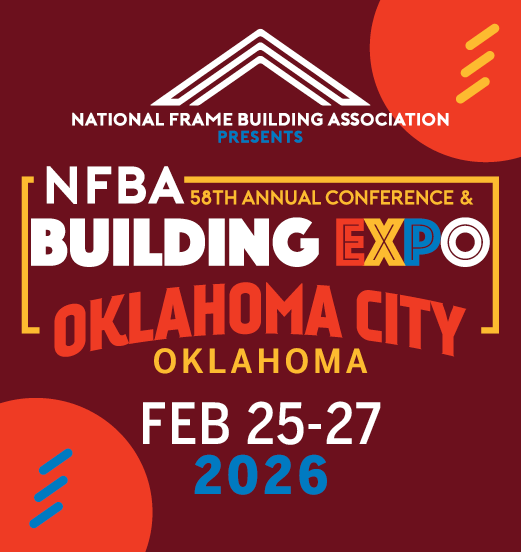
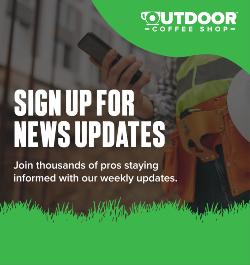
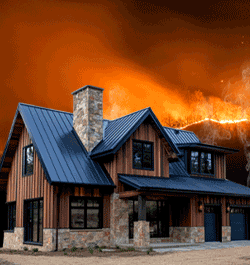

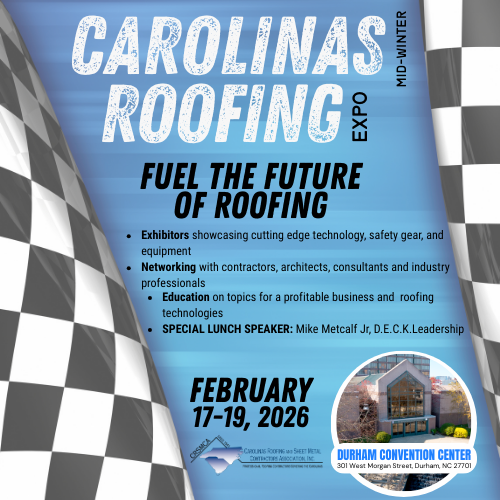



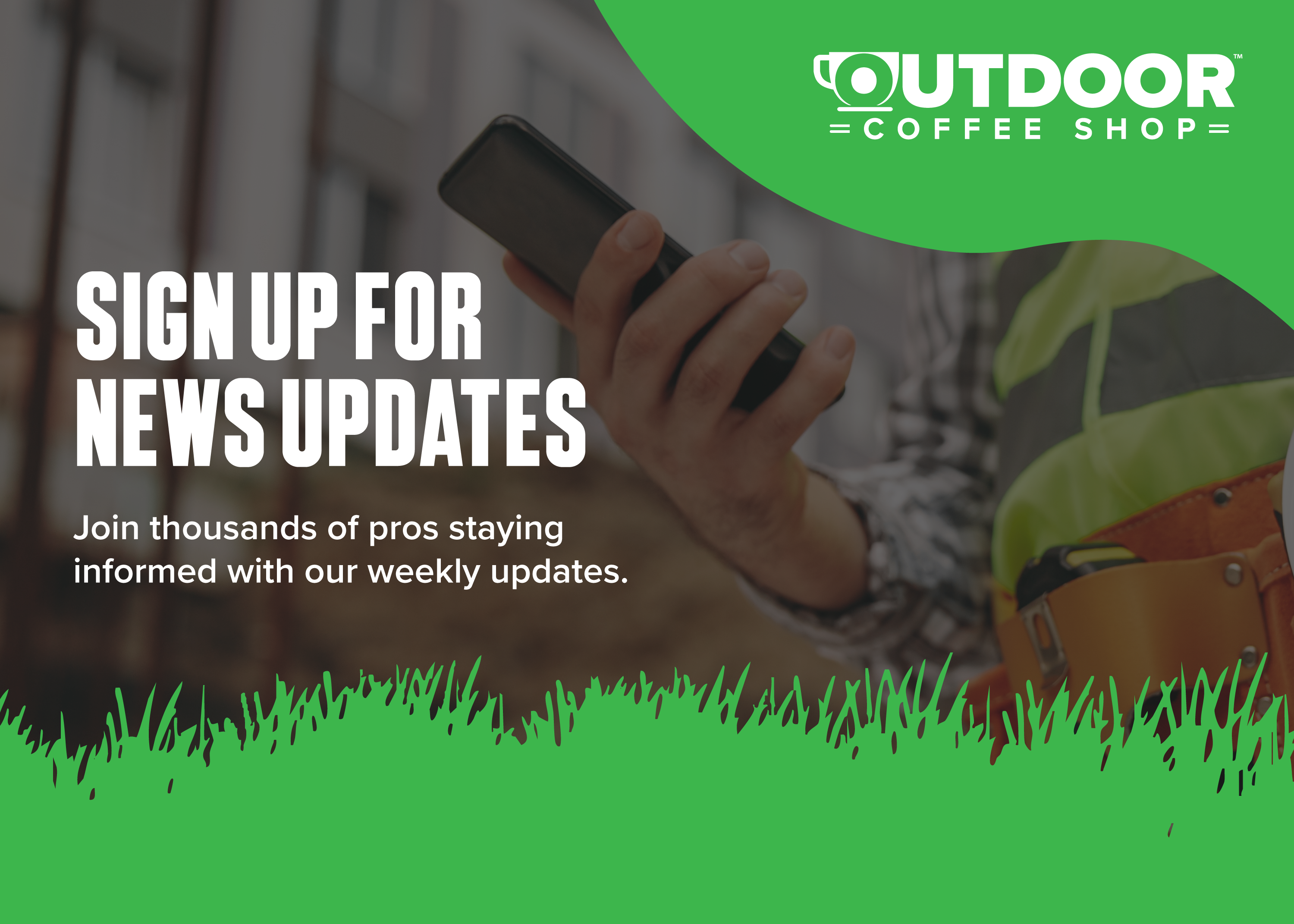


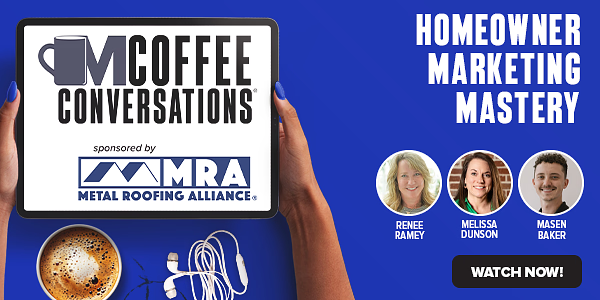
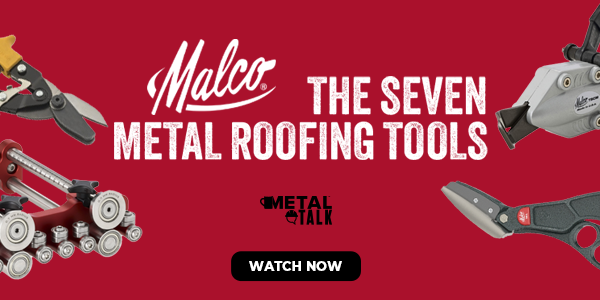
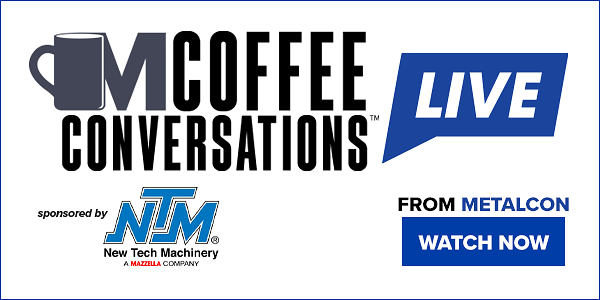
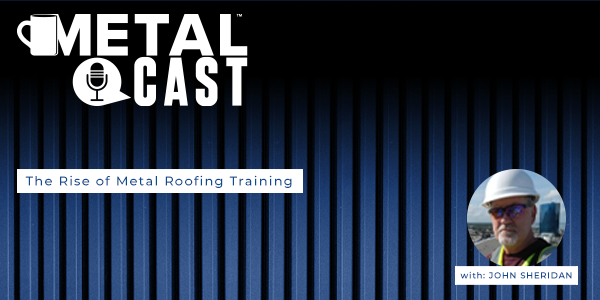



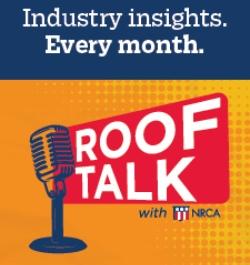
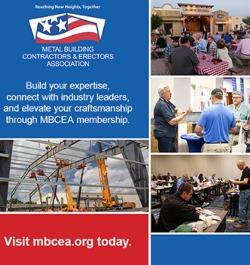
Comments
Leave a Reply
Have an account? Login to leave a comment!
Sign In